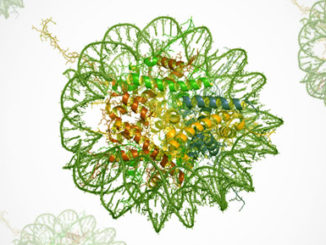High Estrogen Levels Might Epigenetically Protect Women From a Traumatic Event
Whether a woman’s estrogen level is high or low could determine if she may be susceptible to developing post-traumatic stress disorder (PTSD), according to recent research. Estrogen has been found to epigenetically change gene activity in the brain and could even protect a woman from emotional numbness, flashbacks, and difficulty sleeping – all symptoms of PTSD – after a shocking or traumatic situation. Researchers analyzed an epigenetic mark called DNA methylation, which is known to turn genes off. They used [more…]







